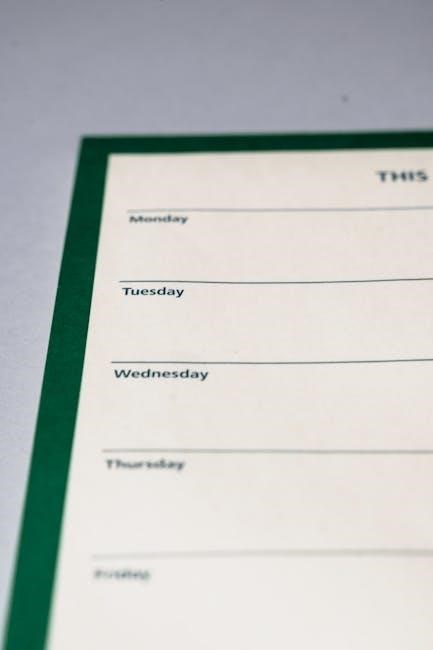An 8-week-old puppy requires a structured routine for proper development. A well-planned schedule ensures consistency in feeding, potty training, sleep, and play, promoting balance and preventing bad habits.
Why an 8-Week-Old Puppy Needs a Schedule
An 8-week-old puppy thrives on consistency, and a schedule provides structure for feeding, potty training, sleep, and play. It helps establish routines, preventing bad habits and ensuring the puppy adapts to its new environment. Consistency aids in house training, reduces separation anxiety, and promotes healthy growth. A schedule also helps owners recognize and meet their puppy’s needs, fostering a balanced and well-adjusted dog. By following a daily plan, you create a foundation for lifelong learning and behavior, ensuring your puppy grows into a confident and well-behaved companion.
Benefits of a Structured Routine for Puppies
A structured routine offers numerous benefits for puppies. It promotes healthy development by ensuring consistent feeding, exercise, and sleep schedules. A routine helps with potty training, reducing accidents and speeding up the learning process. It also minimizes anxiety and stress, providing a sense of security for the puppy. Additionally, a structured schedule enhances cognitive development and supports socialization efforts. By establishing clear boundaries and expectations, owners can foster good behavior and create a strong bond with their puppy. Consistency is key to raising a well-adjusted, confident, and obedient dog.
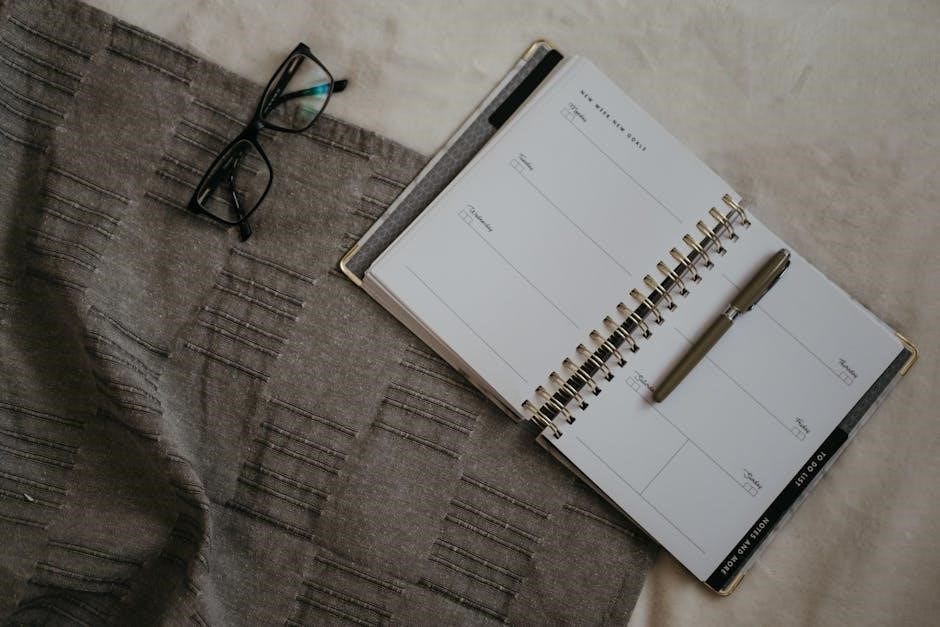
Understanding Puppy Development at 8 Weeks
At 8 weeks, puppies are at a critical developmental stage, requiring careful attention to physical, emotional, and social growth. Consistency is essential for healthy development.
Physical and Emotional Development Milestones
At 8 weeks, puppies are transitioning from reliance on their mother to independence. They develop motor skills like walking and playing, while their vision and hearing improve. Emotionally, they begin to form bonds with their new family and environment. Consistency in care helps reduce anxiety. Physical growth is rapid, with puppies doubling their birth weight. Their small bladders and high energy levels require frequent potty breaks and playtime. Emotional milestones include curiosity and initial social interactions, laying the foundation for temperament. Proper feeding and sleep schedules support overall development.
Importance of Socialization at 8 Weeks
Socialization at 8 weeks is critical for shaping a puppy’s behavior and confidence. Puppies should be exposed to new people, environments, and animals to prevent fear and aggression later in life. Positive experiences during this period help them adapt to the world. Safe socialization can start at home with family members and familiar surroundings. Gradual introductions to new stimuli ensure a smooth transition. Proper socialization practices, like short interactions and positive reinforcement, are essential for emotional development. This foundational period sets the stage for a well-adjusted and confident adult dog.

Puppy Feeding Schedule
An 8-week-old puppy needs a structured feeding plan, typically 4 meals a day, to support rapid growth and energy needs. High-quality puppy food is essential for proper development.
How Often to Feed an 8-Week-Old Puppy
An 8-week-old puppy typically needs to be fed 4 times a day. This frequency supports their rapid growth and high energy levels. Puppies at this age have small stomachs and high metabolic rates, so spreading meals throughout the day helps prevent overeating and ensures they receive consistent nutrition. As they grow, the number of meals can gradually decrease, but for now, four balanced meals are ideal. Consistency in feeding times also aids in housetraining and establishes a daily routine.
Portion Sizes and Nutritional Requirements
An 8-week-old puppy needs high-quality, nutrient-rich food to support growth. Portion sizes vary by breed and weight, typically 1/4 to 1/3 cup per 10 pounds per meal. Puppies require balanced nutrition, including protein, calcium, and vitamins. Overfeeding can lead to obesity, while underfeeding may stunt growth. Consult your vet to determine the ideal portion size and ensure meals are divided into 4 equal parts. A feeding chart can help track intake and maintain consistency, ensuring your puppy gets the nutrients needed for healthy development without overeating.
Best Foods for 8-Week-Old Puppies
The best foods for 8-week-old puppies are high-quality, nutrient-rich puppy-specific formulas. Look for brands like Royal Canin, Orijen, or Hill’s Science Diet, which offer breed-specific and size-appropriate options. Opt for food with whole ingredients, avoiding fillers and by-products. Puppies need high protein for growth, plus DHA for brain development. Wet or dry food, or a mix, can be suitable, but ensure it’s tailored to their age and size. Always consult your vet to confirm the best choice for your puppy’s specific needs and to avoid digestive issues.
How to Avoid Overfeeding or Underfeeding
To ensure your 8-week-old puppy is fed correctly, monitor their intake closely. Measure portions according to the food manufacturer’s guidelines and your vet’s recommendations. Avoid free-feeding by using a schedule and removing uneaten food after 10-15 minutes. Refrain from giving table scraps, as they can lead to overfeeding and nutritional imbalances. Watch for signs of overfeeding, such as rapid weight gain, and underfeeding, like lethargy or thinning. Adjust portion sizes gradually based on growth and activity levels, and consult your vet regularly to confirm your puppy is at a healthy weight.
Puppy Potty Training Schedule
A consistent potty training schedule is crucial for 8-week-old puppies. Regular trips outside, immediately after meals and naps, help establish good habits and reduce accidents effectively.
Creating a Potty Training Routine
Establishing a potty training routine for an 8-week-old puppy involves consistency and patience. Start by taking your puppy outside immediately after meals, naps, and playtime. Choose a specific spot where you want your puppy to go, as this helps them learn to associate the area with potty time. Use positive reinforcement, such as treats and praise, when your puppy successfully goes outside. Avoid distractions during potty breaks to keep your puppy focused. If your puppy doesn’t go, return inside and try again in 10 minutes. Remember, young puppies have limited bladder control, so frequent trips are essential.
Identifying Signs Your Puppy Needs to Go
Puppies often exhibit specific behaviors when they need to go. Sniffing, circling, or squatting are clear indicators. Whining, pacing, or staring at a specific spot may also signal the need. Be attentive to these signs, as they can prevent accidents. If your puppy suddenly stops playing or shows restlessness, it’s likely time to head outside. Consistency in recognizing these cues helps with potty training and strengthens the bond between you and your puppy.
Using a Crate for Potty Training
A crate is a valuable tool for potty training, as it provides a safe space for your puppy and helps prevent accidents. Choose a crate size that allows your puppy to stand, turn, and lie down comfortably. Avoid crates that are too large, as your puppy may use one corner for sleeping and another for relieving itself. Place the crate in a quiet area and use it when you’re unable to supervise. Always take your puppy outside immediately after crate time to reinforce the potty training process. This method helps establish boundaries and consistency.
Common Challenges and Solutions
One common challenge is accidents in the house due to a puppy’s small bladder. To solve this, take your puppy outside immediately after meals, naps, and playtime. Another issue is crate aversion, which can be addressed by introducing the crate gradually with positive reinforcement. Inconsistent schedules can confuse your puppy, so stick to a routine and ensure all family members follow it. If your puppy resists going outside, use a consistent command and reward system to encourage them. Remember, patience and consistency are key to overcoming these challenges and achieving successful potty training.
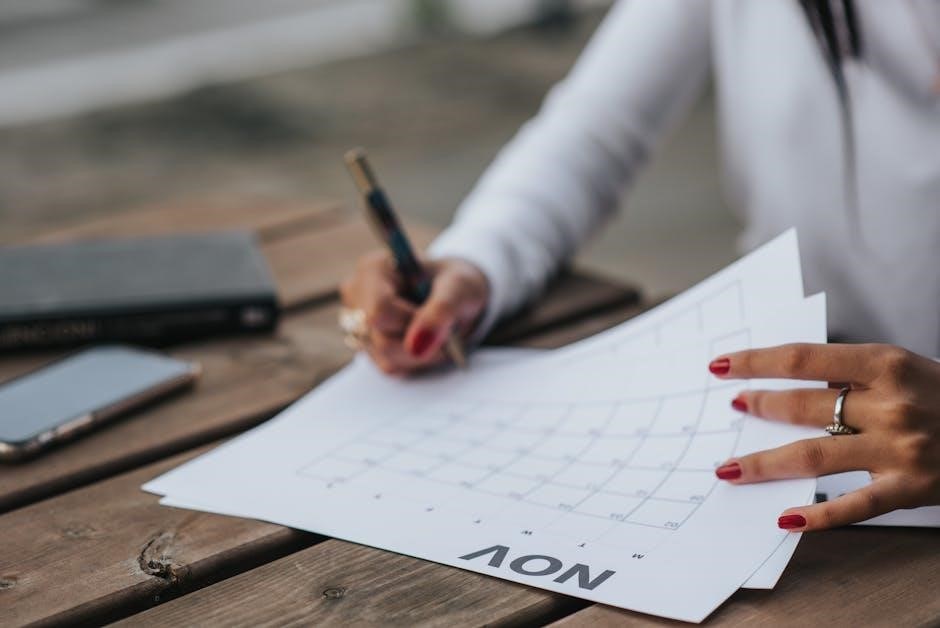
Puppy Sleep Schedule
An 8-week-old puppy needs 18 hours of sleep daily. Provide a quiet, comfortable spot and use crate training to help with potty training. Avoid waking them but take outside immediately after they wake up.
How Many Hours Should an 8-Week-Old Puppy Sleep?
An 8-week-old puppy typically sleeps 18-20 hours daily. This extensive rest supports their rapid growth and helps process environmental stimuli. Puppies need a quiet, comfortable space to recharge. Establishing a consistent bedtime routine aids in regulating their sleep patterns. Crate training can help with both sleep and potty training by providing a secure environment. Always take your puppy outside immediately after waking to prevent accidents. Avoid waking them unnecessarily, as they need uninterrupted rest. Consistency and supervision are key to ensuring your puppy gets the sleep they need for healthy development.
Establishing a Bedtime Routine
Consistency is key to establishing a bedtime routine for an 8-week-old puppy. Begin by winding down activities 30 minutes before bedtime with calm play or a short walk. Ensure the last meal of the day is served 1-2 hours before bed to prevent overnight accidents. Take your puppy outside for a final potty break, then place them in their crate in a quiet, dimly lit area. Avoid stimulating activities or treats before bed. A predictable routine helps your puppy learn to self-soothe and sleep soundly, ensuring restful nights for both you and your pup.
Creating a Safe and Comfortable Sleep Environment
Ensure your puppy’s sleep area is safe, quiet, and free from distractions. Use a crate or puppy-proofed room to prevent accidents and reduce anxiety. Place a soft, comfortable bed or mattress inside the crate. Keep the room dimly lit and maintain a calm atmosphere. Avoid placing the crate near drafts or extreme temperatures. Introduce calming aids like pheromone diffusers or soft music to promote relaxation. Supervise your puppy during the first few nights to ensure they settle well. A consistent and cozy sleep environment helps your puppy feel secure and sleep soundly.
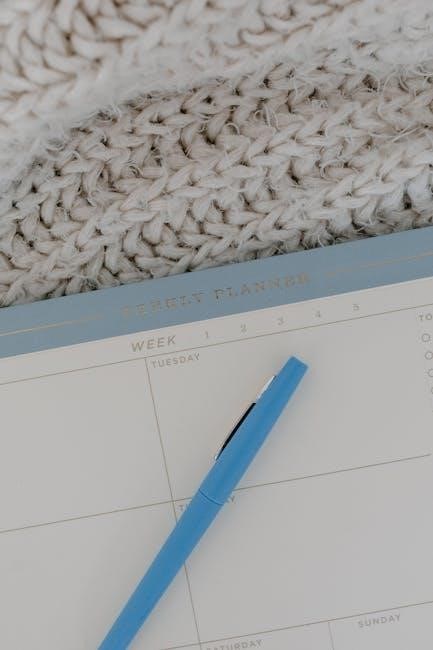
Puppy Exercise and Playtime Schedule
An 8-week-old puppy needs gentle, short play sessions. Activities should be age-appropriate, with 10-minute walks and playtime, repeated 3-4 times daily, ensuring rest periods to prevent exhaustion.
Appropriate Activities for an 8-Week-Old Puppy
An 8-week-old puppy benefits from gentle, short activities that promote development without overexertion. Suitable exercises include short walks (10 minutes), playtime with soft toys, and supervised exploration. Interactive games like light fetch or tug-of-war with small, puppy-safe toys are ideal. Socialization is crucial, so introduce your puppy to new people, environments, and other animals gradually. Crate training also plays a role in teaching boundaries and reducing separation anxiety. Ensure activities are age-appropriate, avoiding rough play or long walks that could strain young joints. Keep sessions brief, with frequent breaks for rest and feeding to support growth and energy levels.
Duration and Frequency of Playtime
An 8-week-old puppy should have short, frequent play sessions to avoid overexertion. Playtime should last around 10 minutes per session, with breaks in between for rest. Puppies this age can tolerate 2-3 short play periods daily, focusing on gentle activities like light fetch or interactive toys. Overexertion can strain young joints and lead to fatigue. Keep playtime calm and engaging, avoiding rough play or prolonged physical activity. This approach supports healthy development and prevents overwhelming the puppy. Consistency in play frequency helps establish a routine, ensuring the puppy stays active without overexertion.
Importance of Gentle Exercise
Gentle exercise is crucial for an 8-week-old puppy to support physical and emotional growth without overexertion. Short, controlled activities like short walks or playtime with soft toys help develop muscles and coordination. Avoid high-impact exercises, as joints are still fragile; Gentle movement promotes healthy development and prevents strain. It also aids in burning energy, reducing hyperactivity, and fostering calm behavior. Overexertion can lead to fatigue or joint issues, so balance is key. Consistent, gentle exercise routines lay the foundation for a strong, healthy puppy and help prevent future behavioral challenges caused by excess energy or boredom.
Incorporating Training into Play
Incorporating training into play is an effective way to engage your 8-week-old puppy while teaching essential skills. Use playtime to introduce basic commands like “sit” or “come” by rewarding good behavior with treats and praise. This method keeps learning fun and prevents overwhelming the puppy. Short, consistent training sessions during play help build focus and obedience; It also strengthens the bond between you and your puppy, making training a positive experience. By combining education with enjoyment, you create a strong foundation for future training while keeping your puppy mentally and physically stimulated.
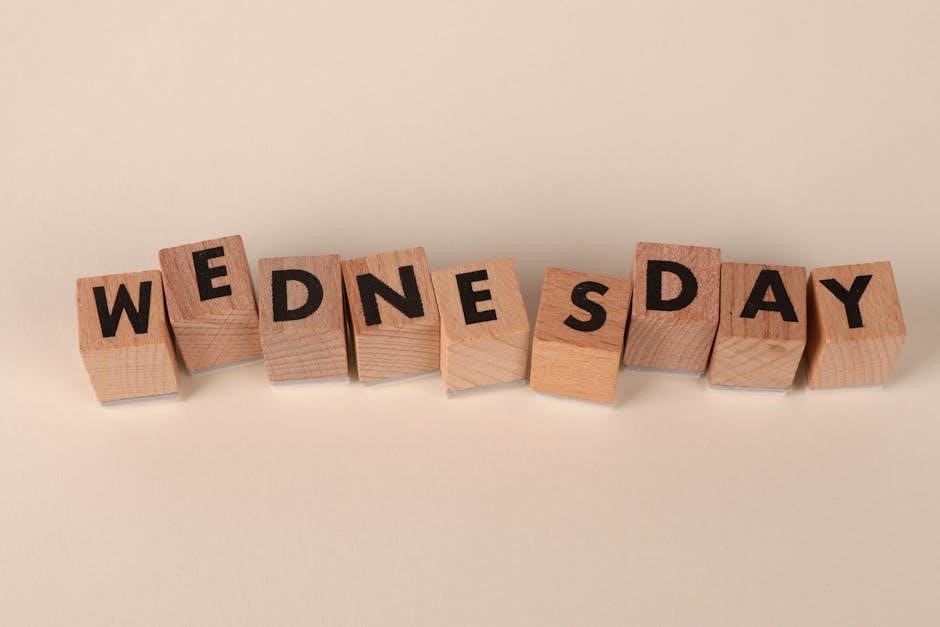
Puppy Socialization Schedule
Socialization is critical for 8-week-old puppies to ensure they adapt to new environments, people, and animals. Positive interactions during this phase help build confidence and reduce anxiety.
Why Socialization is Critical at 8 Weeks
Socialization at 8 weeks is vital as it shapes a puppy’s behavior and confidence. Early exposure to new environments, people, and animals helps reduce fear and anxiety later in life. Positive interactions during this period lay the foundation for a well-adjusted adult dog. Puppies at this age are highly receptive to new experiences, making it the ideal time to introduce them to the world. Proper socialization prevents behavioral issues and fosters a calm, curious temperament. Delaying socialization can lead to long-term emotional and behavioral challenges.
Safe Ways to Socialize Your Puppy
Socializing an 8-week-old puppy requires careful planning to ensure safety. Start with short, positive interactions in controlled environments, such as home visits with vaccinated family and friends. Gradually introduce new settings like quiet parks or puppy classes led by trained instructors. Avoid areas with unknown or unvaccinated dogs to reduce health risks. Use a carrier or leash to keep your puppy secure while exposing them to new sights, sounds, and smells. Reward calm behavior with treats and praise to reinforce confidence. Keep sessions brief to prevent overwhelming your puppy.
Introducing Your Puppy to New Environments
Introducing your 8-week-old puppy to new environments should be done gradually to avoid overwhelming them. Start with short walks around your neighborhood, allowing your puppy to explore new sights, sounds, and smells. Use a carrier or leash to keep them safe and secure. Begin with quiet, low-stress areas like parks or empty trails, then slowly introduce busier spaces. Always monitor your puppy’s reactions and adjust the environment if they seem stressed. Positive reinforcement with treats and praise will help build confidence. This gradual exposure helps your puppy develop good social skills and reduces anxiety in new situations.
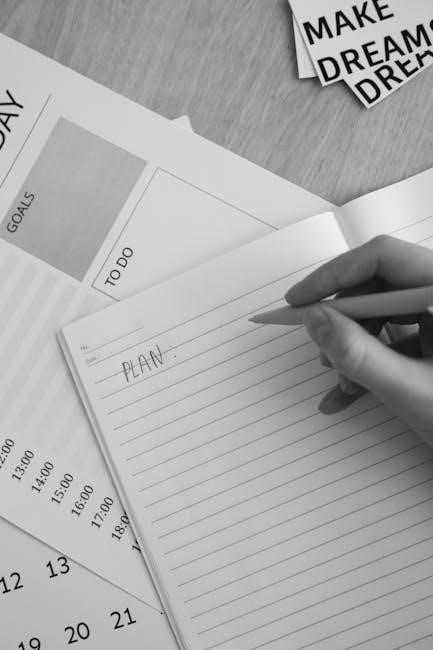
Puppy Health and Safety Tips
Monitor your puppy’s health daily, checking for signs of illness or injury. Schedule regular vet visits for vaccinations and parasite control. Ensure a safe environment by removing hazards and supervising interactions with other pets and children to prevent accidents and stress.
Daily Health Checks for Your Puppy
Performing daily health checks ensures your puppy stays healthy. Start with their eyes—clear and free of discharge. Ears should be clean and odor-free. Feel their nose for wetness and check for any signs of sneezing. Inspect their mouth for red gums and fresh breath. Monitor their coat for shininess and mats. Check their paws for injuries and wear. Look for signs of lethargy or loss of appetite. Ensure their stool is firm and well-formed. Pay attention to any limping or discomfort. Regular checks help catch issues early, preventing serious health problems. Always consult a vet if you notice anything unusual.
Scheduling Vet Visits
Scheduling regular vet visits is crucial for your puppy’s health. Puppies typically begin vaccinations at 8 weeks, with follow-up visits every 3-4 weeks until 16-17 weeks. These visits ensure proper vaccination schedules and monitor growth. Early detection of potential health issues is vital. Discuss a vaccination plan with your vet, as schedules may vary based on breed, size, and health risks. Consistent check-ups help build a strong foundation for your puppy’s long-term health and well-being. Regular vet visits also provide opportunities to address any concerns or questions you may have as a new puppy owner.
Parasite Control and Prevention
Parasite control is essential for your puppy’s health. At 8 weeks, puppies are vulnerable to internal parasites like worms and external ones like fleas and ticks. Regular vet visits include stool checks to detect parasites early. Preventative medications, such as flea, tick, and heartworm treatments, should be administered as recommended. Start these preventatives early, as puppies can be exposed to parasites even before vaccination. Consistent parasite control helps prevent infections and ensures your puppy remains healthy. Consult your vet for the best products and schedules tailored to your puppy’s needs and lifestyle.
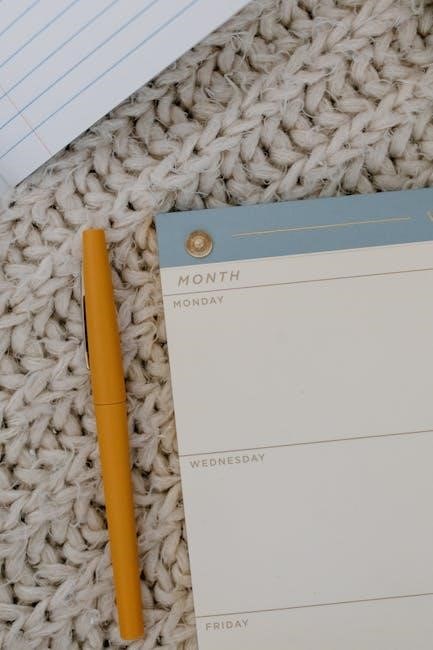
Puppy Safety and Household Precautions
Ensure your home is puppy-proofed by securing toxic substances, electrical cords, and fragile items. Supervise interactions with other pets and children to prevent accidents. Use safety gates to block off hazardous areas and pad furniture edges to avoid injuries. Crate training can also help keep your puppy safe when unsupervised. Always be vigilant to prevent potential dangers and create a secure environment for your puppy to thrive.
Puppy-Proofing Your Home
Puppy-proofing your home is essential to ensure your 8-week-old puppy’s safety. Start by securing toxic substances, electrical cords, and fragile items out of reach. Install safety gates to block access to hazardous areas like kitchens or staircases. Pad furniture edges to prevent injuries and secure heavy furniture to avoid tipping. Remove small objects that can be choking hazards and store cleaning supplies in locked cabinets. Crate training is also a useful tool for keeping your puppy safe when unsupervised. Regularly inspect your home for potential dangers and adjust your safety measures as your puppy grows and becomes more curious.
Supervising Interactions with Other Pets and Children
Supervising interactions between your 8-week-old puppy and other pets or children is crucial for safety and positive experiences. Always monitor playtime to ensure the puppy isn’t overwhelmed. Introduce other pets slowly, allowing them to sniff and familiarize at their own pace. With children, teach gentle handling and discourage rough play. Ensure other pets are vaccinated and healthy to prevent the risk of disease transmission. Crate training can provide a safe space for your puppy during unsupervised interactions. Consistent supervision helps build confidence and prevents potential conflicts.
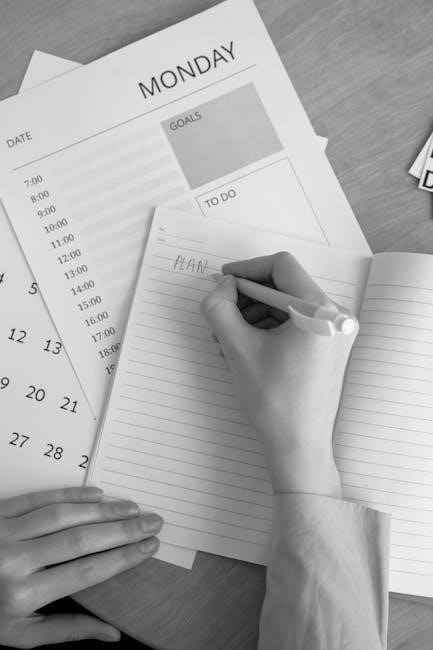
Puppy Training Basics
Introduce basic commands and house rules early. Use positive reinforcement with treats and praise to encourage good behavior. Consistency builds a strong foundation for future training.
Introducing Basic Commands
Start with simple commands like “sit,” “stay,” and “come.” Use positive reinforcement techniques such as treats and praise to encourage learning. Keep sessions short (5-10 minutes) to maintain focus. Be consistent in your approach to avoid confusion. Gradually increase difficulty as your puppy progresses. Patience and repetition are key during this foundational phase of training. These early lessons set the stage for more complex commands later on. Always end sessions on a positive note to keep your puppy motivated and eager to learn more.
House Training Rules
Establish clear house training rules by creating a consistent routine. Take your puppy outside immediately after meals, naps, and playtime. Designate a specific potty area to help your puppy learn where it’s appropriate to go. Use positive reinforcement, such as treats and praise, when your puppy eliminates correctly. Watch for signs like sniffing or circling, which indicate your puppy needs to go. Clean up accidents thoroughly to remove any lingering scents that might attract your puppy to the same spot again. Supervise your puppy at all times when indoors to prevent mishaps and quickly guide it to the designated potty area if needed.
Positive Reinforcement Techniques
Positive reinforcement is key for training an 8-week-old puppy. Use treats, praise, and affection to reward good behavior, reinforcing desired actions. Timing is crucial—reward immediately after the action for clarity. Consistency ensures your puppy associates rewards with specific behaviors. Redirect unwanted actions with positive alternatives, like offering a toy instead of scolding for chewing. Keep training sessions short to maintain focus and avoid overwhelming your puppy. Be patient, as young puppies have limited attention spans and need gentle guidance to build confidence and trust. This method fosters a loving and respectful bond between you and your puppy.
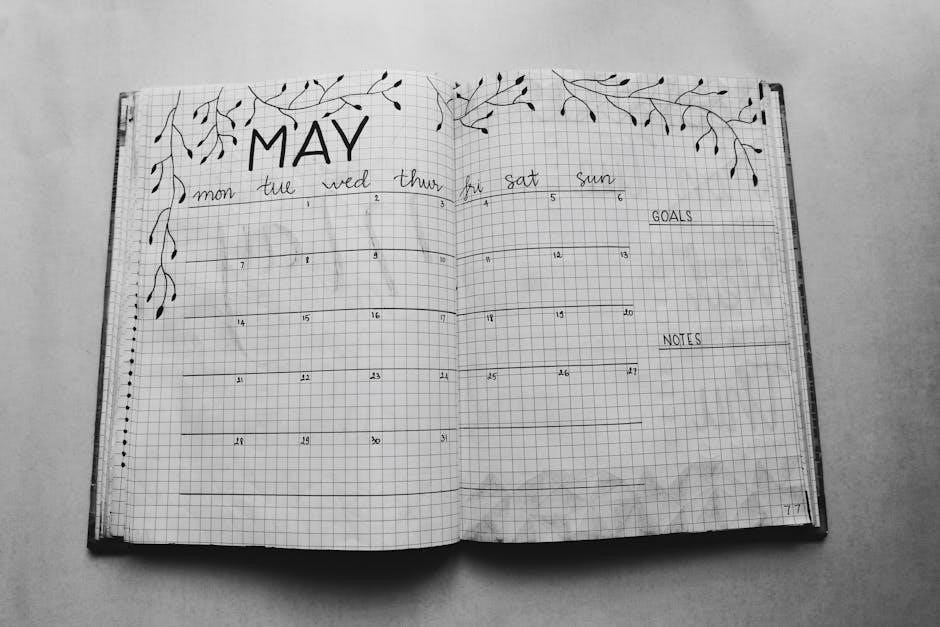
Sample Daily Puppy Schedule
A typical day for an 8-week-old puppy includes regular feeding, potty breaks, playtime, and sleep. Consistency helps your puppy thrive and feel secure.
- 7:00 AM ⎯ Morning feeding and potty break
- 12:00 PM ー Midday feeding and play
- 5:00 PM ー Evening feeding and walk
- 8:00 PM ー Final potty break and sleep
Hour-by-Hour Routine for an 8-Week-Old Puppy
A detailed hourly schedule helps manage your puppy’s day effectively. Start with morning feeding at 7:00 AM, followed by a potty break. Playtime and short naps should occur between 8:00 AM and 12:00 PM. Lunch is at 12:00 PM, with another potty break. Afternoon play and rest continue until 5:00 PM, when dinner is served. Evening walks and playtime happen at 6:00 PM. Wind down with a final potty break at 8:00 PM before bedtime. Consistency ensures your puppy feels secure and develops good habits.
- 7:00 AM ー Feed and potty
- 8:00 AM ⎯ Playtime
- 12:00 PM ー Feed and potty
- 5:00 PM ⎯ Feed and potty
- 8:00 PM ー Final potty break
Adjusting the Schedule Based on Puppy Needs
Every puppy is unique, so schedules may need tweaking based on individual needs. Monitor your puppy’s weight, energy levels, and potty habits to make adjustments. If your puppy is gaining weight too quickly, reduce portion sizes. If they seem overly tired, shorten play sessions. Watch for signs of hunger or fatigue to adjust feeding and nap times. As your puppy grows, gradually increase playtime and reduce feeding frequency. Flexibility is key to ensuring the schedule meets your puppy’s evolving needs while maintaining structure. Be attentive to their cues for a balanced routine.
- Monitor weight and energy levels
- Adjust feeding portions if needed
- Modify playtime duration
- Watch for signs of hunger or fatigue
A well-structured schedule for an 8-week-old puppy promotes healthy development, reduces chaos, and builds a strong bond. Consistency fosters confidence and routine, helping your puppy thrive.
Benefits of Sticking to a Puppy Schedule
A consistent routine provides clarity and structure for your puppy, aiding in house training and reducing accidents. It promotes healthy eating habits, prevents overfeeding, and ensures adequate rest. A schedule also supports socialization by exposing your puppy to new environments and people at the right pace. Additionally, it helps with behavioral development, teaching your puppy to respond to commands and cues. By sticking to a schedule, you create a sense of security and routine, which is crucial for your puppy’s emotional and physical well-being during the critical 8-week mark.
Troubleshooting Common Issues
Common challenges with 8-week-old puppies include potty accidents, feeding struggles, and sleep disturbances. Monitor your puppy’s schedule closely to identify patterns causing these issues. If potty accidents occur, ensure crate training is consistent and trips outside are frequent. For feeding problems, adjust portion sizes or consult your vet for the best food options. Sleep issues may arise if your puppy is overstimulated; create a calming bedtime routine. Addressing these issues promptly helps maintain a smooth routine and supports your puppy’s overall development. Consistency and patience are key to overcoming these common challenges.
Final Tips for Raising a Healthy Puppy
To raise a healthy puppy, prioritize consistency, patience, and love. Stick to the established schedule for feeding, potty training, and sleep. Regular vet visits and parasite control are essential for preventing health issues. Socialization is critical, so introduce your puppy to new environments and people safely. Positive reinforcement training helps with obedience and behavior. Provide a safe, stimulating environment with appropriate toys and supervision. Stay observant of your puppy’s needs and adjust routines as necessary. With dedication and care, your puppy will grow into a well-adjusted and happy companion.
